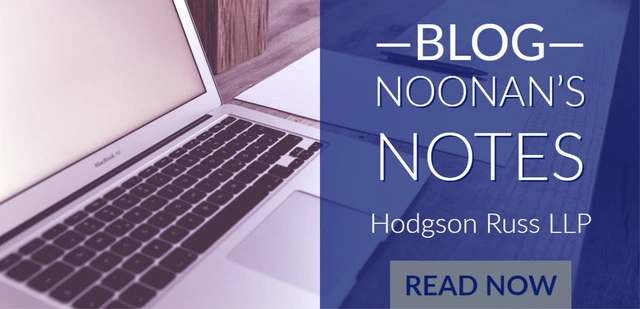
In July, the Massachusetts Appellate Tax Board (ATB) issued a decision upholding the state’s 2020 emergency regulation that required nonresident employees who worked in Massachusetts prior to the pandemic, but worked remotely due to the pandemic, to continue to apportion their income to Massachusetts.
But just because we’re posting about it—don’t confuse the Massachusetts’ emergency regulation with New York’s convenience rule. There are several key differences.
First, unlike New York’s longstanding convenience rule, the Massachusetts regulation was first promulgated in 2020. Second, the Massachusetts regulation was temporary. It applied from March 10, 2020, to September 13, 2021.
Third, the Massachusetts rule allowed nonresidents to continue to apportion income out-of-state, to the extent that they apportioned income out-of-state prior to March 10, 2020. In Massachusetts, nonresidents apportioned their income during the pandemic by whichever of two methods resulted in the smaller tax bill: (1) by using the taxpayer’s percentage of work performed in Massachusetts in January and February of 2020, or (2) if the taxpayer worked for the same employer in 2019, the apportionment percentage that was used to determine the Massachusetts source wages on the employee’s 2019 Massachusetts income tax return.
This is in stark contrast to New York’s convenience rule, which tends to be more of an all-or-nothing proposition—so that every telecommuting workday is considered a New York workday.
Essentially, Massachusetts sought to keep the status quo during the pandemic. And while we don’t think any state should have the authority to tax nonresidents working remotely, at least in the case of Massachusetts, it was a temporary measure.
The Massachusetts emergency regulation is also the same regulation that New Hampshire tried to challenge at the U.S. Supreme Court in 2020. New Hampshire stood up for its residents and argued that the Massachusetts regulation was a direct attack on New Hampshire’s policy choice to not impose a personal income tax. But the Supreme Court declined to resolve the dispute between the states.
That brings us to the taxpayer in the July ATB opinion, Scott Sakowski, a New Hampshire resident, who was left to defend his own position against Massachusetts. Like Zelinsky, the lead case challenging pandemic wage sourcing in New York, Sakowski raised constitutional arguments, asserting that the Massachusetts regulation violated the Due Process and Commerce Clauses. The ATB found the regulation passed constitutional muster, citing the Supreme Court’s South Dakota v. Wayfair sales tax nexus decision and how “times have changed” to support allowing Massachusetts to tax activities occurring outside its borders.
Sakowski also argued that the regulation was invalid because it was inconsistent with the Massachusetts’ statute governing the taxation of a nonresident’s income. While acknowledging that Massachusetts normally did not tax nonresidents on work they performed while telecommuting, the ATB nonetheless upheld the emergency regulation. Apparently, in the ATB’s view the Massachusetts income sourcing statutes can be read to support two opposing views: (1) nonresidents are not subject to tax on income earned while outside Massachusetts and (2) nonresidents can be subject to tax on income earned while outside Massachusetts during a pandemic.
In a well-reasoned and lengthy dissenting opinion, one ATB commissioner argued that the emergency regulation conflicted with the Massachusetts statutes because the statutes only allow for the imposition of a nonresident income tax on income from Massachusetts sources. The dissent also made the point that the regulation was written to apply to nonresidents who telecommuted “on behalf of an in-state business,” and since Mr. Sakowski worked for the federal government, the regulation should not have applied to his income. These counterpoints will likely make an interesting case for Mr. Sakowski if he decides to appeal.
Lastly, and just to reiterate the point above, the legal issues in this case are vastly different from what’s going on in the “convenience rule” litigation in New York, which includes Zelinsky and some other cases. In particular, one of the main problems with New York’s position is that its telecommuting rule is premised on the remote work being for the employee’s own convenience. That premise becomes critical in COVID telecommuting cases, where in most cases employers and governments required employees to work at home. So in those cases, how can the New York tax department assert that an employee who was forced to work from home was in fact just working from home for their own convenience? It is this question that is at the core of many of the New York cases, but it didn’t come up in the Massachusetts case, since the convenience concept was not incorporated into the emergency regulation.


